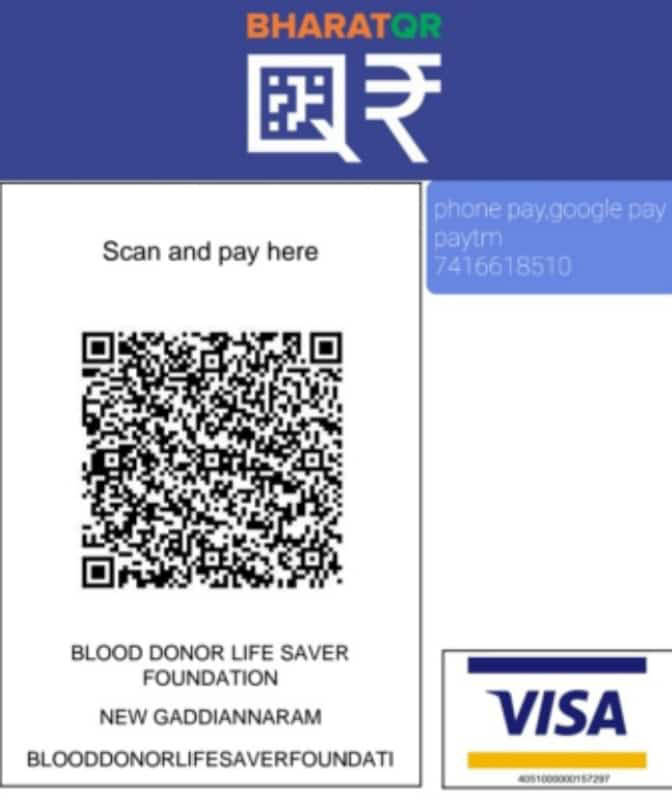Individuals must meet certain criteria to be eligible to donate blood. These criteria typically include:
Age: Donors must be between the ages of 18 and 65 years old.
Weight: Donors must weigh at least 50 kilograms.
Health: Donors should be in good health, with no acute illnesses or infections.
Haemoglobin Levels: Donors must have adequate haemoglobin levels, usually above 12.5 grams per decilitre.
Medical History: Donors should not have a history of certain medical conditions or diseases, such as HIV/AIDS, hepatitis, or cancer.
Lifestyle Factors: Donors should lead a healthy lifestyle, including abstaining from alcohol consumption and avoiding high-risk behaviours such as intravenous drug use and unprotected sex.
Whole Blood Donation: The most common type of donation, where a pint (about 470 milliliters) of whole blood is collected.
Apheresis Donation: Also known as platelet donation, this involves the separation of specific blood components, such as platelets or plasma, using a machine. The remaining blood components are returned to the donor’s body.
Blood donation plays a crucial role in saving lives and improving health outcomes. Donated blood is used in various medical situations, including:
Emergency Care: Blood transfusions are vital for treating trauma patients, surgical patients, and individuals with severe injuries or hemorrhages.
Chronic Conditions: Patients with chronic conditions such as thalassemia, sickle cell disease, and certain types of cancer rely on regular blood transfusions to manage their conditions and improve their quality of life.
Surgeries: Many surgical procedures, including organ transplants and major surgeries, require blood transfusions to replace blood loss and ensure patient stability.
– Guidelines for Before & After Donation
Before donating blood, individuals should:
– Eat a healthy meal and drink plenty of fluids to stay hydrated.
– Get adequate rest and avoid strenuous activities.
– Bring a valid ID and any required documentation.
– Inform the blood bank staff of any medications or medical conditions.
After donating blood, individuals should:
– Rest for a short period and avoid heavy lifting or vigorous exercise.
– Drink plenty of fluids and eat a nutritious snack to replenish lost fluids and nutrients.
– Avoid smoking or consuming alcohol for several hours.
– Monitor for any signs of adverse reactions and seek medical attention if necessary.
For first-time blood donors, the process may seem intimidating, but it’s a straightforward and rewarding experience. Blood banks typically provide information and support to first-time donors, including:
Guidance on eligibility criteria and the donation process.
– Education about the importance of blood donation and its impact on saving lives.
– Support from trained staff who ensure a comfortable and safe donation experience.
– Recognition and appreciation for the donor’s contribution to the community.
Benefits of Donating Blood
Donating blood not only helps save lives but also offers several health benefits to the donor, including:
– Reduced Risk of Heart Disease: Regular blood donation helps reduce iron levels in the body, which can lower the risk of heart disease.
– Improved Blood Circulation: Donating blood stimulates the production of new blood cells, leading to improved blood circulation and overall health.
– Health Screening: Blood donation involves a brief health screening process, which can help identify potential health issues such as high blood pressure or low hemoglobin levels.
– Sense of Fulfilment: Knowing that your blood donation can potentially save someone’s life can provide a sense of fulfilment and purpose.
– Donating blood is a simple yet impactful way to contribute to your community and make a positive difference in the lives of others.
Blood donation is a crucial aspect of healthcare, yet it’s often surrounded by misconceptions. Let’s debunk some common myths and shed light on the facts:
Myth: Blood donation is painful and time-consuming.
Fact: While some people may experience mild discomfort during the process, blood donation is generally painless and takes only about 10-15 minutes for the actual donation. The entire process, including registration and post-donation refreshments, typically takes less than an hour.
Myth: Donating blood is harmful to my health.
Fact: Donating blood is safe and does not have any significant negative health effects for most people. The human body replenishes the donated blood volume within a few days to a few weeks. In fact, donating blood may have health benefits, such as reducing the risk of heart disease and stimulating the production of new blood cells.
Myth: I can contract diseases by donating blood.
Fact: Blood donation centers follow strict protocols to ensure the safety of donated blood. Donors are screened for health conditions and risk factors before donation, and all equipment is sterile and disposable. The risk of contracting diseases through blood donation is extremely low.
Myth: I’m too old or too young to donate blood.
Fact: While there are age restrictions for blood donation, many people fall within the eligible range. In most countries, donors must be at least 18 years old (or meet the legal age requirement) and not exceed a certain age limit, usually around 65 years old. However, some blood centers may have specific age criteria, so it’s best to check with your local blood donation center.
Myth: I can’t donate blood if I have tattoos or piercings.
Fact: Having tattoos or piercings does not automatically disqualify you from donating blood. However, there may be temporary deferrals depending on factors such as the location and timing of the tattoo or piercing. In most cases, you can donate blood after a waiting period of 3 to 12 months, depending on local regulations.
Myth: I need to know my blood type before donating blood.
Fact: While knowing your blood type can be helpful, it’s not necessary to donate blood. Blood donation centers will determine your blood type as part of the donation process. All blood types are needed, so don’t let uncertainty about your blood type deter you from donating.
Myth: I can’t donate blood if I’m menstruating.
Fact: Menstruation does not disqualify you from donating blood. As long as you meet the other eligibility criteria and are feeling well on the day of donation, you can donate blood while menstruating. However, if you’re experiencing heavy menstrual bleeding or symptoms of iron deficiency, it’s best to wait until you feel better before donating.
Myth: I’m not eligible to donate blood because I’m LGBTQ+.
Fact: Blood donation eligibility criteria are based on behavior rather than sexual orientation or gender identity. In many countries, including the United States, LGBTQ+ individuals are eligible to donate blood if they meet the same criteria as heterosexual individuals. However, regulations may vary by country, so it’s essential to check with your local blood donation center for specific guidelines.
By dispelling these myths and understanding the facts about blood donation, we can encourage more people to donate blood and save lives. If you have any questions or concerns about blood donation, don’t hesitate to reach out to your local blood donation centre for guidance and information.

